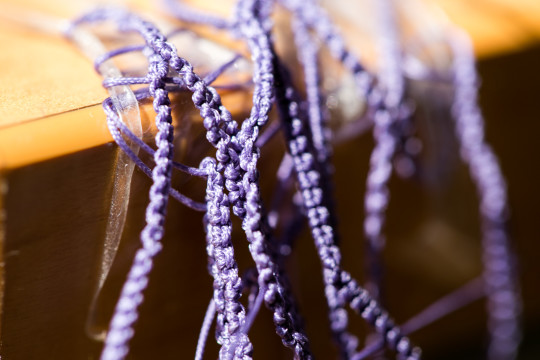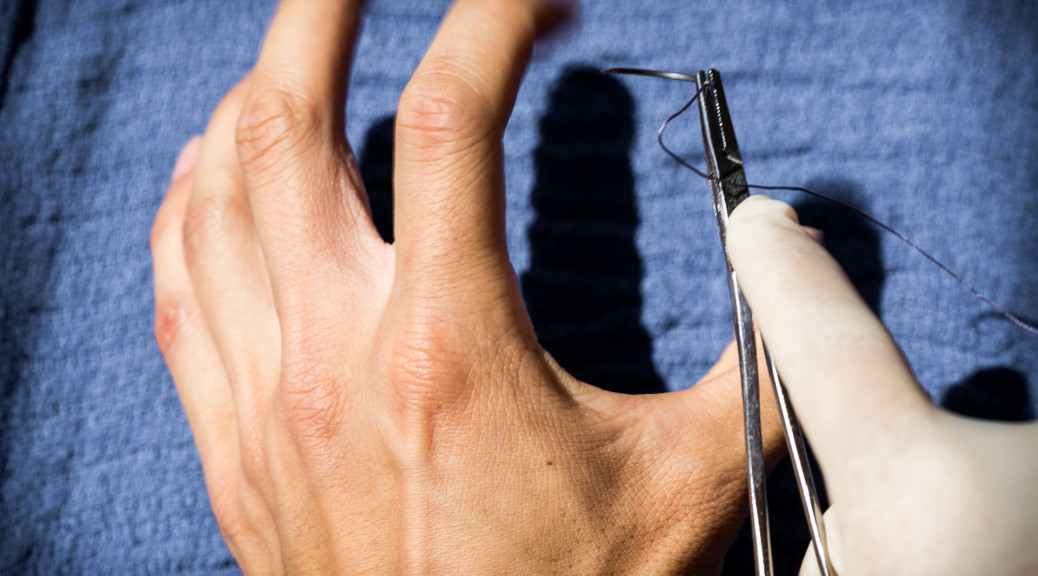I wrote this post in the style of a spoken word performance. It is Part 3 of 3 about my stance on surgery, but it is meant to stand alone.
- Part 1: Swiss Surgery
- Part 2: Pet Peeve: Surgeons Who Can’t Type
- Part 3: My Hands Shake (this post)
My hands shake. Here, let me show you. It’s subtle, but make no mistake,
my hands shake. Yeah, everyone’s hands shake when they’re tired or nervous but
my hands shake even at rest, even at peace, for there’s an unquellable quake inside my hands, and it makes me who I am.
I’ll follow that up by telling you that I’m a serious pianist and violinist, and even in med school I still perform regularly and have gotten to play in Carnegie Hall. I’m a competitive one-handed Rubik’s Cube speedsolver who was ranked top 20 in the country with times around 17 seconds, which is absurd but also true! And ever since I witnessed my dad work wonders as a vet surgeon, I’ve dreamt of becoming a surgeon myself. So, surely, I have quote-unquote “surgeon’s hands,” right? Stable, sturdy, steadfast, unshakeable hands?
No.
My hands shake. A constant little quiver in my left index finger. A whisper of a shiver through both whole hands. It doesn’t look like much, but hands touch every aspect of your life. Literally touch. Literally handle, control, reign your life. Or in my case, they literally me hold back.
For instance, those hands sketched out on cheap chopstick wrappers teaching westerners how to use chopsticks? Yeah, they’re better than mine. I also can’t eat noodle soups properly because my left hand spills everything, so basically I’m a disgrace to my culture. I’ve given up on western etiquette too because I’d rather be improper than stab my face with a fork again. I have this great memory of my childhood when my parents forced me to sit down for hours and try to write with a proper pencil grip. I regret to inform you that they were not successful. My officemates used to tease me for my loud erratic typing, but now that I’ve designed my own custom keyboard layout, I can type loudly and no one can mess with my computer anymore. Ha, joke’s on them!
But actually, because my hands shake, I’ve learned to compensate, to compromise. That’s why I’m great at cutting food with a fork, why I hold my pencils with a vice-like grip, why I really did design and program my own keyboard layout. Even more, I’m a one-handed speedcuber because my left hand is too unsteady. When I take photos, I use a faster exposure time than most people need. I grip my violin differently so I can play accurately, but as a consequence I can’t do proper vibrato.
My hands shake. You don’t need to look far to see the scars. It marred me as a scientist. It molded my career. In chemistry, scalded by caustic reagents when I spilled it. In physics, scolded for knocking over lasers. In biology, I tore wells in gels with pipettes. But the worst was when I was microdissecting glowing zebrafish pancreases, and I wasted two months of fish breeding, six hours of dissecting, and basically my entire wetlab career when I spilled the Petri dish with twitchy tweezers. I’ve been forced to adjust, acquiesce, and accept that a profession based on dexterity is probably not for me.
I’ve done it before. Surrendering. Putting my hands up metaphorically. Once upon a time, music was my life. I loved it. I begged my parents to start piano lessons when I was four years old and found that I was gifted with perfect pitch, solid rhythm, uncanny muscle memory. However, I don’t remember when I learned that my hands shake, that I was cursed with probabilistic imprecision. For me, practice never meant perfect.
What I do remember though is learning, over and over, performance after performance, that hands are everything in an art like music. Without a delicate command of my instrument, I couldn’t communicate true nuance. What could I do? Without my hands, I was unarmed. And when you add stage fright…
You can see it, the concert hall.
Stage fright, lights burning bright, keen eyes and ears peering down from a height, and my memory ready to recite, if only my hands could play it right.
I sit there at the bench, my palms are sweating, fingertips unsteady as they shake there above the keys. Shaking. “Please,” I whisper. “Please hands, just freeze.”
But my hands ignore my pleas and shake instead, and the shaking doesn’t cease and increases and so my hands stumble over the keys as they fumble through the piece.
That is stage fright, night after night, downright heartbreaking. Frustrating.
I know that walk off stage well, hands still trembling, but now with tears welling as I sulk off and sit in the darkness not hearing the music because my thoughts are choking my mind as I stare at my hands wishing, dwelling. Thinking to myself, if I could just quell my rebelling hands,
Take a hammer to my fist,
Or an axe or a saw,
Draw a blade ‘cross my wrist,
Try to carve out my flaw…

Anyway, that was years ago. Now that I’m halfway through medical school, I know why my hands shake. An essential tremor, caused by a miswiring in my nerves. It’s quite common, and increases in incidence with age, and occurs mostly in the hands. On the scale of essential tremors I’ve seen, mine is mild. I can try to control it by drinking less coffee (which I already don’t drink), drinking more alcohol (which seems like a bad idea), or taking beta-blockers(which I can’t take). There is no surgical cure.
Now that I’ve coped with my hands for decades, my identity has been molded by them. I’ve accepted the limitations that my tremor imposes on my aspirations. My hands are why I failed to become an exceptional musician, why I’m a middling speedcuber and a blurry photographer.
My hands shake, that’s my excuse. After all, I can see it, feel it. It’s so tangible. But what if that’s the wrong attitude? What if that’s me copping out using a convenient narrative instead of pushing through my particular hardship? What if it’s perfect takes that much more practice?
That being said, narrative or not, there’s no question my hands are unreliable under pressure, so I should probably steer clear of careers that rely on pure dexterity. Speaking of which! Now that I’m halfway through medical school, having just completed my two-month rotation on surgery, I’m on the precipice of deciding whether or not to become a surgeon. If I dare.
I started out wishing I’d walk into the OR and realize that I hated it. That I’d hate the rote repetition, the sterile monotony, the unnatural brutality. Most med students hate the OR actually, and honestly, it’s not hard to see why. I mean, have you been in an OR?
We bring in a stranger, knock them out, strip them naked, tie them down, ram tubes in their throat, arms, nose, penis, then we eviscerate them, barbecue their flesh, and call them cured. To work in an OR, you have to scrub in, which means you’re sterile, which means you’re trapped. For hours and hours you stand with no water, no bathroom breaks, no scratching your nose or adjusting your glasses. You can’t even text your friends about your misery. I would endure 25+ years of education for those working conditions.
You may have guessed what happened next. I loved the OR. I loved the controlled environment, the manual refinement, the simplicity.
I asked the residents if they thought I could make it as a surgeon despite how my hands shake. They tell me, “sure!” They tell me, “my hands do too! I just brace my hands on the patient and it’s all good.” They tell me, “there are plenty of great surgeons who have tremors, but they’re all right in the OR.” They tell me “well, just avoid neurosurg and vascular. And maybe plastics and ENT too.” They tell me as long as you want it enough, it’ll work out.
And I don’t believe them.
I don’t believe them because surgery is unforgiving, and surgeons even more so. In two months, the surgeons I worked with have told me “calm down, there’s no need to be nervous!” Or “someone’s had a bit too much coffee.” Playful jabs in light of my inexperience. They’ve teased “you look like you’re having a seizure” or “do you have early-onset Parkinson’s or something?” Those sting now, but I’ve heard truly hurtful insults thrown at the residents. They told them “If you’re not confidently prepared, just stop wasting my time and scrub out.”
Hands represent us in the OR. In the OR, we are only what our hands can perform. In the OR, uncoordinated hands are interpreted as a symptom of anxiety, which escalates to generalized incompetence, which is misconstrued as a moral failing. And my hands shake.
Can I really survive when my hands, which should be my greatest allies, are holding me back? The rest of the road to becoming a surgeon is formidable. Surgery residency is a five-year gauntlet of impossible hours, oppressive hierarchy. Do I really want to when the end is so tainted with uncertainty?
I can see it, the operating theater.
Stage fright, Lights glowing bright, blood flowing from the vessel I hit when sewing. The beeping slowing, the noise growing. My hands knowing what to do. It’s so simple: you just hit, so just stitch it.
I stand there over the patient, gloves sticky with sweat, slippery with blood, ready to plunge the needle deep into the bloody sea. Shaking, “Please,” I whisper. “Please hands, just freeze.”
But my hands ignore my pleas and shake instead, and the shaking doesn’t cease and increases and so my hands miss their mark and the cacophony rises as anesthesia screams about failing vital signs, the nurses rush out looking for blood. My eyes blur. Their words slur, the buzz in my ears grows so deafening that overpowers the din, the world spins. The beeping slows. Then it stops.
This is what stage fright could be, a lost fight, night after night. Downright heartbreaking. Lethal.
I dread that walk out of the OR, hands still trembling, I sulk off to tell the family that their loved one died on the table because of my technical error, then I’d stare at my hands wishing, dwelling. Thinking to myself, why did I ever let anyone put their lives in my hands? My hands shake.
Thinking to myself, if I could just quell my rebelling hands,
Take a scalpel to my wrist
Digging deep to the nerve
Thinking paralysis
Is all my hands deserve…
I hope that was a good read! This is me testing my evolving storytelling ability by framing the great saga of my life as a long-form poem. It does make a good narrative, doesn’t it? Made richer with hand metaphors and made poignant by feeling a little scary. It was either this or the “I trained my hands to be dexterous because my hands shake” stance.
